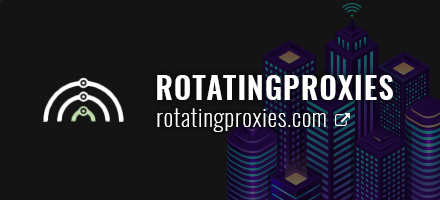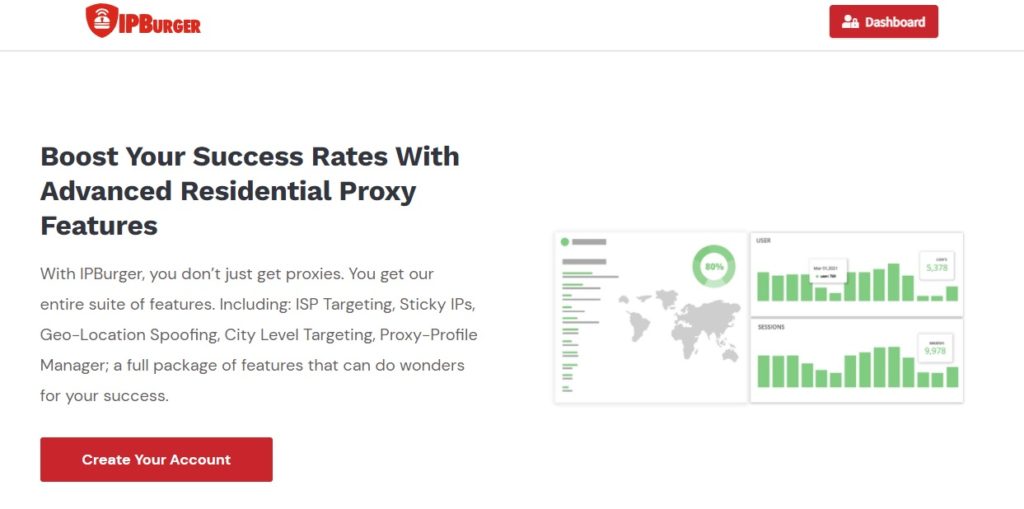Fast Residential Proxies: Ultimate in Residential IP Anonymity
You may not realise it, but sitting at home browsing the internet you’re actually using a hugely valuable resource. It’s called a residential IP address and it’s been assigned to you by whoever allows you access to the internet – usually your ISP (internet Service provider). The IP address is of course is essential for any device to be able to go online, indeed every single network enabled device has a unique one. However the one you get from your ISP has an additional attribute – it’s classified as residential – as opposed to commercial, educational and so on.

The address in itself has all the same characteristics of any other IP address, you certainly couldn’t tell the difference between a residential and commercial address by looking at it. So it’s the same format, same number of digits as any other address yet it’s by far the most trusted address you can have online. However it’s most important characteristic is that it marks the user as an ordinary home user.
Many websites check all sorts of aspects of this address when you connect, a sort of online social profiling. The main aspects web sites are concerned with are your location and how they are classified. Although other checks are also made, for example if the IP address has been blacklisted for fraud or spamming and are on blacklists like Domain Name System Blacklists. So if your IP address is classified as a commercial address from Nigeria known for using stolen credit cards you’ll definitely be treated differently irrespective of who you actually are! For everyday events most people will have a pretty easy ride using a standard residential IP address from their home internet connection.
What is a Proxy ?
A proxy is an intermediary computer that can be used to change your IP address. A proxy server is designed for advanced users who want to hide their true IP address. You might want to hide your identity, your location or both – it doesn’t matter. If you use a proxy server, as long as it’s set up correctly you should be anonymous.
What are Residential Proxies?
Very simply they are standard proxies which use residential IP addresses. This is completely different from the vast majority of proxies and VPNs which are almost always allocated commercial IP address ranges. It is a small but crucial difference, it’s very simple to set up commercial, standard proxies. However setting up fast residential proxies is extremely difficult simply because the IP addresses are so hard to source.
The simplest way to get them would be to lease or buy them directly from ISPs however they’re not allowed to do this. Residential IP addresses should only be assigned to standard home users for their internet connections.
Enter the Residential Proxy Servers
People use proxy servers for all sorts of reasons and tasks. However there’s an important factor to remember that when you do use a proxy, it’s that IP address of the proxy which is detected and analysed by whichever site you’re visiting. So for anyone who wants their internet connection to operate normally while using a proxy it really needs a residential IP address too. If you bounce your connection through a datacenter proxy based in Moscow prepare to face quite a few unusual blocks and restrictions. For anyone who wants to appear and be treated as a normal home user then that proxy must have a residential IP address.
Which is the problem – most proxies don’t have residential addresses because they’re much harder to get. Indeed much of the value and cost of proxy service are based on the IP addresses not the actual servers. If you look at the prices of any proxy servers, assume that they use datacenter IP addresses unless stated otherwise. These are the standard services and much cheaper than the residential proxies which are needed by many.
Fastest Residential Proxies from the USA
Take for example this company who specialize in rotating and backconnect proxies –
All their standard proxies are based on datacentre address ranges, yet they also have a selection of Premium Dedicated Residential proxies plus servers with IPs specifically designed for certain services. So if you were intending to make some money as a Ticket reseller then you’d pick Ticketmaster proxies for example.
So there’s choices to be made depending on the purpose required. Often it’s a balance between price, quality and speed – some tasks are more restrictive than others. Typically anything to do with making multiple purchases from any sorts of E-Commerce servers require fast residential proxies which normally are the most expensive. Lots of SEO tasks though can be accomplished with most IP addresses so it makes sense to choose the cheapest in these scenarios.
But Don’t Forget the Location !
If you connect through an Indian address then you’ll get things like search results tailored for that location. Which for research purposes is obviously vital, after all if you’re investigating whether adverts are being displayed for European users then an Indian IP address is of no use whatsoever. Similarly your digital location can cause problems when using E-commerce servers which are usually programmed to identity unusual behaviour or patterns. So a site selling clothing for the US market wouldn’t expect to get transactions from African IP addresses for example, hence it’s likely to fail.
Which Residential Proxy should you use in 2023
Anyone looking to buy proxy servers should consider the following factors carefully –
- Residential or Commercial – Residential addresses are more expensive and harder to find.
- Location of IP registration – sometimes you may even need specific cities, generally right country is enough
- Speed – if you’re looking to cop a few sneakers on a big release, speed will matter too.
- Static or Rotating – static addresses are again more expensive, however rotating addresses often have ‘sticky modes’ where they don’t change as often.
If you’re not sure then it’s best to ask the proxy providers as they’ll normally be able to help you. I can definitely recommend RotatingProxies if you’re looking for US based residential IP addresses although they have just added other Tier 1 countries like UK, Canada and some in Europe too.
Another great option is a company called IPBurger who have been in the residential proxy market for many years. They also crucially offer geo-targeting of their proxies although currently only in the US at the moment. So you can choose a residential IP from Chicago, New York etc, etc.
When you’re looking it’s also worth being aware of the pricing model too, some providers charge per time of use but others measure bandwidth too. This is more likely to happen with residential services because of their limited supply. Unlimited bandwidth residential proxies for your dedicated use only are going to come with the highest charges so only use when absolutely necessary.
Where do Those Residential IP Addresses Come From?
Another important issue to be aware of is the origin of the residential addresses. Technically as we’ve already mentioned – these are only accessible to providers who supply them direct to home users such as Internet Service Providers. There are other ways of gaining these addresses and often they involve routing directly through the home computers.
Some providers base their residential model on such methods such as Luminati (now Bright Data) who have amassed an amazing network of over 30 million residential addresses which they route through a sophisticated backend which can control parameters like speed and location for instance. This network is created by an agreement with home users who use applications and programs for free in exchange for routing a small amount of data through their connections (and hence the residential IP addresses). The sheer number of addresses allows them to segregate and group access into different locations and provide the fastest residential proxies too.
Other companies use addresses obtained in less ethical ways. It’s worth knowing that some cheap residential proxies are actually built on addresses gained by using viruses and malware. Using these you’re actively routing your traffic through Botnets of hacked PCs without the knowledge or consent of the owners. Remember residential IPs take a lot of effort to obtain legitimately and you won’t get a free residential IP as there’s a significant cost involved to obtain them.
What is the best way to use Residential IP addresses?
Basically to make money, unless you are incredibly concerned about your privacy then most people use these addresses to make money in some way.
Most internet marketers and online businesses usually need to operate multiple identities online to operate effectively. For example, using bulletin boards and advertising sites like Craigslist won’t work if you can only post a single advert in your home location. They like many sites only allow a single account to post from their current location.
So a selection of US residential addresses all over the US will be hugely valuable allowing them to post dozens of free adverts all over their target market! That’s just one example, many other include running multiple accounts on social media or e-commerce sites like eBay. Basically if you have a way of making money online – proxies and particularly residential proxies allow you to scale it up.
Here’s some more –
- Shopify Sites or Sneakers Bot can use residential proxies for Adidas and Nike websites.
- Spammers who want to target specific users or websites.
- They are also widely used in SEO for information scraping
- Perfect for data harvesting and collection of information.
- Social media marketing – running multiple accounts e.g. Instagram, Twitter etc.
- Ticketing sites – buying up high value tickets for resale.
FAQ – Few More Proxy related Questions
What is a Static Residential Proxy?
This is a proxy that supplies a static residential address i.e. one that doesn’t change. These are harder to obtain but are useful for doing things like buying tickets, sneakers etc where you don’t want the address to change during checkout.
What are NY Residential IP addresses?
Often people need residential addresses in very specific locations. Mainly when they need to pretend to be from a specific area. A NY address would be one that is registered to a residential account in the New York Area.
Can I Use Datacenter IPs ? (they’re cheaper)
You don’t always need to use fast residential proxies for all tasks. In many instances, ordinary proxies will work fine. However datacenter proxies are easier to detect and many sites will block or blacklist them very easily. Typically fine for things like web scraping, data harvesting, using SEO tools and low value social media accounts.
Where do the Residential IPs Come From ?
For many years, residential proxies were hugely expensive because it was so difficult to get enough residential IPs. Now there are several methods employed by the residential proxies provider companies which make them much more accessible. Mostly these IP addresses are ‘borrowed’ from real home users in exchange for applications and software. Other methods include renting or buying directly from ISPs and relaying them through their proxies.
Bad Residential IPs
Unfortunately another way to gain access to large numbers of residential IPs has been discovered by cyber criminals. This is by installing and spreading malware and adware which hijacks user’s connections without them knowing. These IPs are used for various criminal offences and sometimes resold through cheap proxy providers. These are not the best residential proxies to use as the IP addresses are usually blacklisted by this time.
What is a VPN?
A Virtual Private Network (VPN) is a type of secure network connection that allows users to access private networks over the public internet. It helps to keep data secure, provides access to restricted networks, and enables users to access the internet anonymously.
What are Fresh Proxies?
Fresh proxies are proxies that have been recently created or released. They are generally used to access websites and services anonymously and protect one’s identity from being revealed. Fresh proxies are typically more reliable than older proxies because they have not yet been detected by authorities or blocked by websites.

